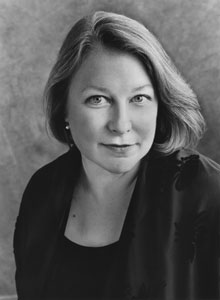BKMT READING GUIDES
A Discovery of Witches (All Souls Trilogy)
by Deborah Harkness
Kindle Edition : 594 pages
14 clubs reading this now
1 member has read this book
Deborah Harkness’s sparkling debut, A Discovery of Witches, has brought her into the spotlight and galvanized fans ...
Introduction
Book one of the New York Times–bestselling All Souls trilogy—"a wonderfully imaginative grown-up fantasy with all the magic of Harry Potter and Twilight” (People)
Deborah Harkness’s sparkling debut, A Discovery of Witches, has brought her into the spotlight and galvanized fans around the world. In this tale of passion and obsession, Diana Bishop, a young scholar and a descendant of witches, discovers a long-lost and enchanted alchemical manuscript, Ashmole 782, deep in Oxford's Bodleian Library. Its reappearance summons a fantastical underworld, which she navigates with her leading man, vampire geneticist Matthew Clairmont.
Harkness has created a universe to rival those of Anne Rice, Diana Gabaldon, and Elizabeth Kostova, and she adds a scholar's depth to this riveting tale of magic and suspense. The story continues in book two, Shadow of Night, and concludes with The Book of Life.
From the Trade Paperback edition.
Editorial Review
Ten More Books for Readers of A Discovery of Witches

Interested in learning more about magic and science?
I may have written a novel, but I’m still a history professor! Here are some reading suggestions for those of you whose curiosity has been stirred up by the story of Diana Bishop, Matthew Clairmont, and the hunt for the missing alchemical manuscript Ashmole 782. All of the titles here are non-fiction, and inspired some aspect of A Discovery of Witches.
Elias Ashmole, Theatrum Chemicum Brittanicum: Don’t be put off by the Latin title. This is a collection of English alchemical texts that were gathered by Elias Ashmole. The missing alchemical manuscript that Diana finds in the Bodleian library is not among them, alas, but if you are interested in the subject this is a fascinating glimpse into the mysterious texts that she studies as a historian.
Janet Browne, Darwin’s Origin of Species: Books That Changed the World: Browne is not only a great scholar, but a superb writer. A highly-regarded biographer of Darwin, here she turns her talents to writing a “biography” of his most famous book—and one of Matthew Clairmont’s favorites, as well.
Owen Davies, Grimoires: A History of Magic Books. If you are interested in the history of magic and witchcraft, Davies’ description of the development of magical spellbooks will provide insights into how ideas about magic, science, and nature developed over the centuries.
Carol Karlsen, The Devil in the Shape of a Woman: Witchcraft in Colonial New England. Diana Bishop is descended from a long line of witches. You will find out more about some of those witches—the Bishops and the Proctors—while reading this classic interpretation of what happened in Salem in 1692.
Robert Kehew, Ezra Pound, and W. D. Snodgrass, Lark in the Morning: The Verses of the Troubadours. Matthew is a very old vampire, who has slightly old-fashioned views on love and romance. You might be surprised at the love poetry of his early life, and come away with a whole new appreciation for “old-fashioned.”
Bruce Moran’s Distilling Knowledge: Alchemy, Chemistry, and the Scientific Revolution. This marvelous book is not only deeply learned but extremely readable. Touched with Moran’s sense of humor and his compassion for his subject’s tireless efforts to understand the natural world, you will come away from this book with a new appreciation for the alchemists.
Alexander Roob, Alchemy and Mysticism. Diana Bishop is an expert on the enigmatic imagery that is used in alchemical texts. Many are included in Roob’s book, along with other illustrations from mystical and magical traditions.
Lyndal Roper, Witch Craze: Terror and Fantasy in Baroque Germany. This scholarly book was important to me as I wrote A Discovery of Witches because it helped me understand how the belief in witches influenced the imagination. Many of the notions we have about witchcraft today have their roots in these terrifying fantasies.
James Sharpe, Instruments of Darkness: Witchcraft in Early Modern England. Sharpe’s book is an ideal starting point if you are interested in the history of witchcraft beyond Salem or Germany. One of his most controversial arguments focuses on the role that women played as accusers—not just as victims—in the witchcraft trials.
Bryan Sykes, The Seven Daughters of Eve: The Science That Reveals Our Genetic Ancestry. I was fascinated by the combination of history, genealogy, and science in Sykes’s work. The book provides an introduction to the study of genetics, and to the legacies that are carried from generation to generation among the population.
--Deborah Harkness (Photo of Deborah Harkness © Marion Ettlinger)Discussion Questions
No discussion questions at this time.Book Club Recommendations
Recommended to book clubs by 0 of 0 members.
Book Club HQ to over 90,000+ book clubs and ready to welcome yours.
Get free weekly updates on top club picks, book giveaways, author events and more








